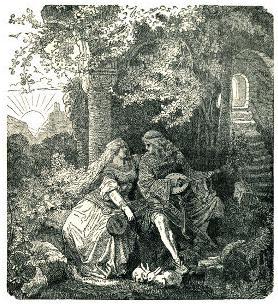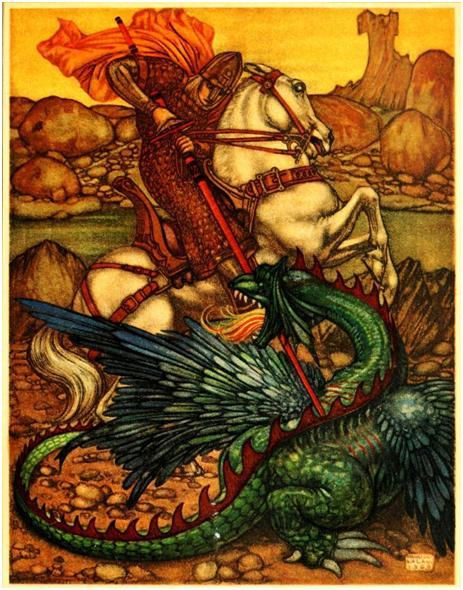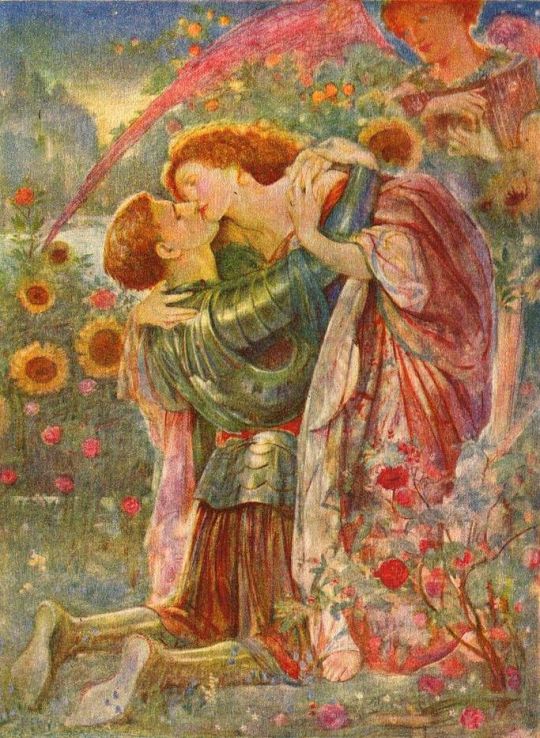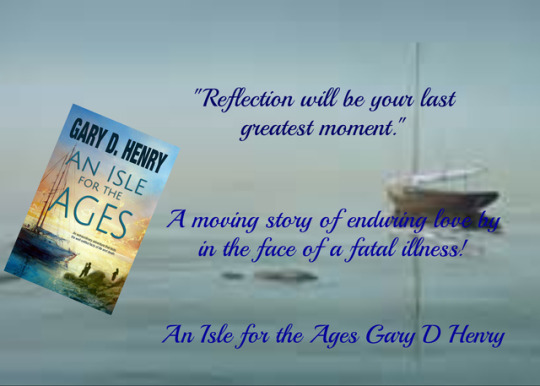#suicidepact
Text

13 notes
·
View notes
Photo

#TheEndCuh #TheEnd #yourtime #itiswhatitis #okcuh #bruh #suicidepact https://www.instagram.com/p/CAwBV76lDN6/?igshid=yapabfisml5z
1 note
·
View note
Photo

The Bois part deux #SuicidePact #ChicagoBean
1 note
·
View note
Photo

..a moment of silence in reverence to us...in reverence to the world we once knew...to the life we took for granted... We toasted to and for the beginning. We toasted to and for the end. The #SuicidePact of #AllHailTheHumans can be read in #wattpad #Piscesean #TheMadWriter #AHTH https://www.instagram.com/p/B4oXf1gnn37/?igshid=1wy376xat4eux
0 notes
Photo


14 notes
·
View notes
Photo

Happy BATiversary to this beautiful ghoul. I can't believe it's already been a year. Thank you for being my partner and my best friend...and by far the only creature I've been able to be around literally 24/7 without making me go insane. We are the most beautiful cult, and I'll gladly forever drink your kool-aid. #deadsexy #deadlove #lovebats #witchcrusheveryday #tildeath #suicidepact (at San Antonio, Texas)
2 notes
·
View notes
Text
I’m so tired of baby boomers
They keep telling us millenials we are a useless burden on society, and tbh I’m starting to believe them.
Hey, let’s all make a suicide pact, if we can’t find a job in 2017, we all kill ourselves and make our life insurance pay the baby boomers in our life pressuring us to find a job even though there are no jobs. They get money (which is what they care about I suppose?) and we get to express our nihilistic view on life.
and hey, if they STILL don’t get it, we wont be here to have to listen to their shit any more!
7 notes
·
View notes
Text
Me: If I listen to the Peter Gabriel cover of Heroes from the Stranger Things OST I’m going to cry.
*smashes the play button*
Sophie’s Corpse
Smashed on the ground.
My tears can’t catch you. You
told me it’s ok. I will avenge you
https://xkcd.com/505/https://xkcd.com/505/
0 notes
Text
What is L*indsay E*llis’ issue with Raoul de C*hagny? (doing it this way because I don’t want to fight. I just want to vent. Also, note that I love L*indsay E*llis. But there are a few things she thinks that I don’t agree with--because no one on the planet is in 100& in agreement with someone about everything--and this is one of those things).
Like, this is the second P*hantom video she’s done where she's roasted him (and this is partly why the only P*hantom video of hers I’ve been able to watch more than once is the 2004 movie one. Because she doesn’t do that there. And amazingly has some good things to say about R*aoul there. Who knew she had it in her?). And I don’t get it.
Is this one of those “I love problematic E*rik, so to try and justify that I have to take R*aoul’s few--honestly harmless--flaws up to eleven” kind of things?
In her most recent video, she was saying how he always thinks she’s a slut. And tbh, it’s been a while since I’ve read L*eroux (and yes, she’s talking about the L*eroux novel in this part of the video), but I only remember this happening one time. During the masked ball, when R*aoul lost faith in C*hristine for a moment there. But honestly? Given what he knew at the time--which wasn’t much, and all the mixed signals C*hristine was giving him. Though it wasn’t my baby’s fault--I get why he’d come to the conclusion that she was just playing with him, maybe. Or trying to see who she could get more from: him, or this E*rik person. Since R*aoul is a vicomte, and is probably used to people trying to take advantage of him, sadly. But after this one time, he quickly changes his mind about it and tries to make up for it. And all other times, R*aoul thinks, if anything, innocent C*hristine is under the thrall of some dangerous man and doesn’t blame her for it, and rather wants to help her. That itself is, perhaps, somewhat problematic in its own right--yes--but it’s certainly not all of the slut shaming that L*indsay E*llis seems to think R*aoul throws at C*hristine.
She also seems to think he victim blames her... which I don’t recall happening once? Quite the opposite, really. He believes her entire story about the house on the lake and everything that happened to her, that most wouldn’t have. At all. And that’s putting it mildly. And once again... more often than not, we’re seen R*aoul seeming to think that C*hristine is a victim in all of this, and that he needs to help her before she’s truly lost? How is that victim blaming again? Unless you’re just basing it on the one time he thought she was playing him: but again, if so... that’s not really fair, because R*aoul didn’t have the full story there at all. And it was one moment of weakness. One! And before someone gets mad at R*aoul thinking he had to save C*hristine, maybe even from herself some... C*hristine gets to a point where she doesn’t trust herself to make the best decisions anymore (though I think my girl is being a bit too hard on herself, because she did all of the right things in the end). And the moment the situation gets really dire, she tells R*aoul he has to take her away from E*rik, even despite of herself if it comes down to it--since at that point, it will only end in blood and tears.
Just- R*aoul de Chagny is actually a really good man! Especially for the time period the story takes place in and that he was written in! He never once forgets the kindness an immigrant and his daughter showed him as a child, and loves that child--who everyone says is beneath him--all of his days. And him loving her at all would be the equivalent of social suicide--and he could lose everything--because loving an opera singer was no better than loving a whore, in nobles’ eyes. But R*aoul doesn’t care, and is ready to throw everything away for C*hristine (which he does. Nearly dying for her, and having to leave his family and his fortune when E*rik murders his brother--and R*aoul’s blamed for it--so R*aoul does this to avoid his family having to go through a courtroom drama. And he doesn’t care, and never once blames C*hristine for any of it or seems to blame her. And at the end of L*eroux, they’re happy together, along with C*hristine’s Mamma V*alerius, who they took with them.) He was also respectful to the Persian, which most people also wouldn’t have been in this era... actually, respects C*hristine’s agency quite well... does change for the better in some parts, as everyone in this story does...
And I want to point out that when R*aoul and C*hristine first agree to run away together, R*aoul is thinking he’s going to get nothing out of it, not even C*hristine. Since at that point, she’s sworn never to marry. And while R*aoul doesn’t get it, he respects it. He asks her to just let him help her get out of this dangerous situation, and then he’ll leave--thinking that’s what he wants.
I also don’t think L*indsay E*llis realizes that C*hristine and R*aoul have swapped gender roles in this, that actually explains some things. C*hristine is actually the strong hero--on par with the villain/antagonist, who saves the day from him--and R*aoul is the “damsel in distress”, having some tropes from that that you’d probably see from girl damsels in this time, tbh. It kind of surprises me that she didn’t pick up on this, because she says in the video how the book was actually trying to be really progressive for its time--and it was--and that it’s impressive... and yet I think she completely glossed over this other section that it was trying to be progressive in.
#and in some ways I hate being such a staunch r*aoul supporter that these things keep me from fully enjoying what are otherwise 99.9%#AMAZING videos. imo. that I'd LOVE to watch again... but it is what it is I guess#I think she also sort of missed just how much c*hristine wanted to die. and not just because of e*rik. so he never thought she'd agree to#stay alive and marry him. even for others' lives. and that really it was almost a suicidepact between them#so the fact that c*hristine DOES choose to marry e*rik--a fate she saw as worse than death--partly to save HIM is the MAJOR reason he#becomes undone by c*hristine's goodness and has his change of heart#I'm also leery of recommending her P*hantom videos to people who don't know l*eroux tbh. because I feel her perception of R*aoul is so#wrong#and people already hate r*aoul so much anyway. because he gets in the way of The Ship. we don't need to stoke those fires even more with#things I feel aren't even true?#I'm just doomed to like all the characters and ships--that are usually canon even--that everyone else hates for some reason. oh well
1 note
·
View note
Audio
The party didn’t end until the next one could begin…
1 note
·
View note
Text
Tristram and Isolde – A Free Story of Romance in the Middle Ages
From Epics and Romances of the Middle Ages Translated from the compiled works of Dr. Welhelm Wägner

Tristram Teaches Isolde To Play The Guitar.
TRUSTY RUAL AND HIS FOSTER-SON
A furious battle was raging before the gates of the castle, for Rivalin, the lord of the place, was fighting against Morgan, his feudal superior, whose oppression had grown too great to be borne. Within the castle, Blancheflur, Rivalin’s wife, was praying fervently for her husband’s safety, as she clasped in her weak arms her little son that had been born while the din of battle filled the air.
All day long it lasted. In the evening, Rual, the marshal, hurried back into the castle bleeding, and called to his wife to save what she could, and make ready for instant flight, for King Rivalin had fallen, and the enemy threatened to blockade the castle. Queen Blancheflur heard what he said, and with a piercing cry fell back dead. Rual, seeing that nothing could be done for her, hurried the other women in their preparations, and, heedless of his own untended wounds, made ready to fly with his master’s child to a place of safety.
But while they hastened to obey the marshal, it was already too late—the castle was surrounded, and no way of escape remained. They carried the dead queen to another room, and the marshal’s wife took the baby for her own. The servants were all faithful, and when Morgan took the castle soon afterwards, he never guessed that Rivalin had left a living child. The victorious king, who honoured Rual for his fidelity to his late master, made him governor of the kingdom he had just subdued, and then went back to his own place.
Time passed on, and the foster-parents were delighted with the good qualities their pupil developed. They had had him christened Tristram, or Tristan (Sorrowful), because of the sad circumstances that had attended his birth. Rual himself taught him all knightly exercises, and got him tutors to instruct him in music, languages, and many other accomplishments.
One day some foreign merchants landed on the coast, and offered their wares for sale. Young Tristram often went down to see them, and questioned them about their country, and about the many strange lands they visited. The boy’s unusual beauty and the great knowledge he possessed aroused their cupidity. They determined to steal him, and sell him in some foreign country where he would bring a good price. So once, when he was on board their ship, they quietly raised the anchor, and set sail. Rual pursued them, but they escaped, owing to the greater swiftness of their vessel. Another danger, however, threatened to overwhelm them. A terrific storm came on, worse than any they had ever encountered before. They thought it a sign of God’s wrath, and were filled with fear and awe. In the perturbation of their souls they swore to set the boy free, and they kept their word. They put him ashore on an unknown coast, feeling assured that with his uncommon gifts he would soon make a livelihood. They were not mistaken. A troup of pilgrims happening to pass that way, Tristram joined them, and accompanied them to the court of King Mark of Cornwall. The king took the boy into his service as page, and grew very fond of him.
Meantime Rual had sought his foster-son everywhere, and was broken-hearted at not being able to find him, or hear any news of him. He wandered from one country to another, begging his way. At last, footsore and weary, he arrived at King Mark’s court. Tristram greeted him with joy, and took him to the king.
When Mark heard who the supposed beggar was, he exclaimed angrily:
“What! Are you the former marshal of the traitor Rivalin, who stole away my sister Blancheflur?”
“Sire,” replied Rual, “love made him do so. The Lady Blancheflur had been secretly married to my master before she went away from here. She and her husband are both dead, and this youth,” laying his hand on Tristram’s shoulder, “whom I have brought up from his infancy, and whom I have sought for years, is their only child.”
The king was astonished to hear this tale, and was pleased to find that his favourite page was in reality his nephew. Rual remained in Cornwall with his foster-son, for, his wife being dead, he did not care to return home, and again endure Morgan’s despotic sway.
Tristram grew up to be a tall and handsome man, a brave warrior, and a noble knight, as much beloved in peace as in war. But although he lived a full and joyous life, he could not forget his native land, and often mourned over the thought that his fellow-countrymen and rightful subjects groaned under the tyranny of a foreign oppressor. He at last explained his feelings on the subject to his uncle, who gave him men and ships, telling him to go and set his people free, but making him promise to return to Cornwall afterwards, as he had appointed him to succeed him on the throne.
The expedition was successful. Morgan was defeated and slain, and Tristram was crowned King of Parmenia. He remained for a year longer in his native land, settling all differences, and arranging matters for the good of his subjects. Having done this, he made Rual governor of the realm, and returned to Cornwall as he had promised.
ISOLDE (YSEULT, ISOUD)
On his arrival there, he found everyone in great distress. King Gurmun of Ireland had, during his absence, invaded Cornwall, and, with the help of his brother-in-law Morolt, a powerful chief and great warrior, had subdued the country, and forced King Mark to pay him tribute; and a shameful tribute it was. By the treaty with Gurmun, the Cornish king was bound to send thirty handsome boys of noble birth to Ireland every year, to be sold as slaves for the benefit of the Irish king. On the very day of Tristram’s return, Mark was about to deliver the thirty boys into the hands of grim Morolt, Gurmun’s messenger, who had come to receive them.
Tristram was very angry when he heard the news, and told the knights they were cowards ever to have consented to such an arrangement. Then going straight to Morolt, he tore up the treaty, saying it was too inhuman to be kept. Morolt’s only answer was to draw his sword and challenge him to single combat. He accepted, and the fight began. After some time, Morolt, having severely wounded Tristram, cried:
“Yield, Sir Tristram: I feel pity for your youth. Yield, and my sister, Queen Isolde, shall cure your wound, for she alone can heal a wound made by my poisoned blade.”
“Death rather,” exclaimed the young knight, and making a mighty effort, he split his adversary’s head open from crown to jaw.
This settled the matter. The Irish returned home sadly, bearing with them the corpse of their hero, while the victor went back to his uncle’s palace. His wound was washed and bound, but it would not heal. It continued to fester, in spite of the use of balm, and other herbs of well-known excellence. An experienced doctor who was called in to see the patient, said that only the Irish queen Isolde, and her daughter of the same name, possessed the art of drawing such poison out of a wound. So Tristram determined to go to Ireland in the guise of a minstrel, and seek healing at the hands of the queen, although he knew that Gurmun had sworn to kill him and every Cornishman who had the misfortune to fall into his hands.
At length he reached the Irish court, and there he played and sang so beautifully that the queen sent for him, and begged him to teach his art to her young daughter Isolde. The minstrel found the princess an attentive pupil; and while teaching her, and listening to her sweet voice as she sang some plaintive ditty, he would even forget for a time the pain of his wound. And she, in learning from him, learnt to love him with all the strength of her innocent young heart.
The days went on, and the pain of his wound grew worse and worse. Then he told the queen of his suffering, and asked her to heal him. This she at once consented to do, and a few weeks later he was cured. He now sang with greater power than before, and the king was so charmed with his music that he would have liked to keep him forever at his court. But, fearful of discovery, Tristram determined to be gone while yet there was time.
On his return to Cornwall, he was joyfully received by all except the great lords, who foresaw that King Mark would make him his heir, and they did not wish to have a foreigner to rule over them. They wished the king to marry, and Tristram, finding what was in their minds, himself advised his uncle to choose a wife, saying that the Princess Isolde of Ireland would be the most suitable person for him to wed. After some deliberation, it was agreed that Tristram should go to King Gurmun as his uncle’s ambassador, to ask for the hand of the princess.
Arrived in Ireland, he set out for the royal residence. On the way he heard heralds proclaiming that the king would give his daughter in marriage to whoever slew a dragon that was devastating the land, provided he who rescued the country were of noble birth.
Tristram sought out the dragon, and, after a long struggle, killed it; then cutting out the tongue of the creature, as a proof that he had really slain it, he turned to go; but the pestiferous breath of the monster so overpowered him, that he sank backward into the morass out of which the dragon had come.

Tristram slays the dragon
Struggle as he might, he could not free himself, for he had sunk up to the shoulders. While in this miserable plight, he saw a horseman approach, cut off the head of the dead monster, and then ride away.
The horseman was sewer (head waiter) at the palace. He showed the king the dragon’s head, and boldly demanded the meed of victory. The queen, who knew the man well, and held him to be a coward, did not believe his tale; so she went with her train to the dragon’s hole, and discovered the real hero in the morass. His bloody sword, and the dragons tongue showed that it was he who had done the deed. He was quite insensible when he was taken out of the morass and carried to the palace. The princess at once recognised him to be the minstrel who had before visited Ireland, and hoped that his birth was sufficiently good to enable him to win the prize. The queen gave him a sleeping potion, and told him to keep quiet. Then taking her daughter into the next room, she showed her the horrible tongue of the lind-worm, and the sword with which the creature was slain.
“Look,” she said, “the minstrel is the real hero of this adventure, and not that cowardly sewer.”
She left the room, adding that the truth would soon be known. Isolde took up the sword and examined it. She saw that a bit of the blade was broken off.
“Merciful heaven,” she cried, “surely he cannot be the——” She ceased, and took from a drawer the splinter of steel she had drawn out of the wound on her uncle’s head. She fitted the splinter to the blade, and saw that it was as she had feared.
“Ha,” she went on, trembling with anger, “he is the murderer of my uncle Morolt. He must die, die by my hand, and be slain with his own weapon.”
Seizing the sword in a firmer grip, she went into the room where Tristram was sleeping, and swung the sword over his head; but as she did so, he smiled as in a happy dream, and she could not do the deed. Then it seemed to her that she saw her uncle looking at her reproachfully, and she nerved her heart to strike, but at that moment her hand was seized by her mother, who had entered unnoticed.
“Wretched child,” she cried, “what are you doing? Are you mad?”
Isolde told the queen that this was Tristram, her uncle’s murderer; and the mother answered:
“I loved my brother dearly, but I cannot revenge him, for this man has saved our people from the dragon, and a nation is worth more than a single man, however dear to our hearts.”
Isolde confessed that her mother was right, and let her resentment die.
When Tristram had recovered, he did not show the dragon’s tongue in proof of what he had done, but challenged the sewer to trial by combat. Now the man had often fought before, but when he saw Tristram come forth to meet him in the lists, his heart died within him, and he confessed his guilt. King Gurmun thereupon ordered the recreant knight’s shield to be broken, and sent him forth a banished man.
Tristram then fetched the dragon’s tongue, and was at once proclaimed victor amid the acclamation of the people.
Great was the astonishment of all, when Tristram, instead of claiming the princess’ hand, proceeded to woo her for his uncle King Mark, of Cornwall. Gurmun had such a dislike to King Mark that he would have refused him as a son-in-law point-blank, if Queen Isolde had not taken part in the debate, and shown the wisdom of giving way. So Tristram received a gracious answer from the king, and was content. No one thought of asking the maiden if she were willing to marry the old king of Cornwall. She was a princess, and princesses were never allowed a choice, when reasons of State demanded that they should marry some particular person.
THE LOVE-POTION
The princess went on board Tristram’s vessel, which was about to sail for Cornwall. Her dresses and jewels were there also, and as soon as her old nurse and faithful companion came down to the ship, they were to set sail. Brangäne was closeted with the queen, who wished to say a few last words in private.
“Look, Brangäne,” said the mother, “take this goblet, and keep it carefully. It contains a drink made of the expressed juices of certain plants, and is a love-potion. See that my daughter and her husband both drink it on their marriage day, and all will yet be well.”
The nurse promised to be careful, and took leave of the queen.
Wind and weather were favourable to the voyagers. One day when Tristram had been singing and playing to the princess for a long time, and trying his best to distract her thoughts from dwelling on her dead uncle, her old home, and the unknown future, he became so thirsty that before beginning another song he was fain to ask for something to drink. One of the attendants opened a cupboard, and finding there a goblet with a drink all ready prepared, supposed that the nurse had made it in case it were wanted, and took it to Tristram, who handed the cup first to Isolde that she might pledge him, as was the custom. The princess raised the cup to her lips and drank a little; but finding it very good, she put it to her lips again, and drank half the contents. Then she returned it to Tristram, who finished it at a draught.
Their eyes met, and they knew that they loved each other.
When Brangäne came in a few minutes later, and saw the empty goblet upon the table, she burst into tears, and bemoaned what had occurred, saying that the queen had given her the love-potion to administer to Isolde and King Mark upon their wedding-day. But the princess comforted her by asserting that no harm was done, for human beings had free will, and could struggle against enchantment. And struggle they did; but their love was strong.
The ship reached the harbour, and King Mark came down to meet his nephew and his bride. He was much pleased with the appearance of the princess, whom he welcomed with all ceremony. The marriage took place, and King Mark thought himself a happy man.
All went on quietly for some time, so carefully did the nurse conceal her lady’s love for Sir Tristram; but after a time people began to whisper, and at length the whisper reached the ears of the king. At first he would not believe the truth of what he heard, but afterwards the thing was proved to him so clearly that he could no longer doubt. He determined to bring the lovers to trial. Meanwhile Brangäne had discovered that the king knew all; she therefore warned Tristram, and fled into the forest with him and Isolde. There they hid themselves in a cave for a long time. But winter was coming on, and the nurse feared for her darling’s life if she remained in such a place during the frost and snow.

Tristram kneels before Isolde
One day as they were talking over what were best to be done, King Mark suddenly appeared amongst them. Brangäne stepped forward, and assured him that the stories that he had been told were all gossip; and the king, who loved both Tristram and Isolde, willingly believed her, and took them home with him.
But the effect of the philter had not yet passed off, nor had the young people conquered their love. Whispers again arose about the court, and Tristram could not call any of the whisperers to account, for he knew that he had dishonoured the name of knight, and had ill repaid his uncle’s kindness. Isolde, too, was miserable. They both made up their minds that they must part, and as they said farewell, it was with the fervent hope that the magic potion would have lost its power by the time they met again.
Tristram went away. He wandered through Normandy and Alemannia; he fought many battles, and led a bold, adventurous life, but he could not forget Isolde. At last he came to the kingdom of Arundel, and there he found King Jovelin and his son Kaedin hiding in a thatched cottage in a great forest, from the bands of robbers who had overrun the land. It was late in the evening when he arrived at the solitary house, where he met with a kind reception. The lovely daughter of his host, curiously enough, was also named Isolde, to which was added the appellation of “la blanche mains.” It did him good to be with the maiden and her father. He promised them his aid, and for this purpose went to visit his own kingdom. There he found his presence much wanted, for old Rual was dead, and all was confusion in the land. His first action was to re-establish order and good government, after which he called out his troops, and marched to Arundel to help King Jovelin. He fought the robbers there, chased them out of the land, replaced the king on his throne, and made friends with Kaedin. Weeks passed, and he became engaged to Isolde of the white hand. He vainly hoped that being married to another woman would cure him of his love for the Queen of Cornwall, and he knew that the princess loved him.
His betrothal did not bring him peace. His affection for the Lady Isolde grew no stronger, so in despair he put off his marriage, and, unable to feign a love he did not feel, went out to seek death at the hands of the robber hordes that had again invaded the country. He conquered them, and forced them to fly. On his return from this expedition, his marriage day was fixed; but one evening he was induced to accompany his friend Kaedin on a dangerous adventure, and during the combat to which this led, he received a spear thrust in the breast. He fell senseless to the ground. Kaedin carried him out of the fight, and took him home to the palace, where Isolde succeeded in bringing him to himself again.
Every one hoped that he would soon recover from his wound; but instead of that he grew worse. One day he said that the Queen of Cornwall had a remedy that would cure him, if she could only be induced to bring it. Kaedin at once set off for Cornwall to appeal to her compassion. No sooner had the queen heard his tale than she persuaded King Mark to let her go to Arundel, and cure his nephew. Armed with his permission, she started on her long journey by sea and land, and never rested till she arrived at King Jovelin’s palace. There she was greeted with the sad words, “You have come too late—he is dying.” They led her to his couch, and she knelt down and took his hand. A slight pressure showed that he knew who she was; next moment he opened his eyes, gazed at her with a sad and loving look, and then died. She bent over him and kissed him, and in that kiss her spirit passed away. They were buried three days later under the same grave-mound in the distant land of Arundel.

=================
TRISTRAM AND ISOLDE – A Free Romance from EPICS AND ROMANCES OF THE MIDDLE AGES 32 epics and romances.
Translated from the compiled works of Dr. Wilhelm Wägner.
ISBN: 9788834192702
URL/Download Link: http://bit.ly/2t2usSv
=================
TAGS:#tales, #legends, #middle ages, #myths, #sagas, #wilhelmwagner, #love, #lust, #knightsinshiningarmour, #amor, #Amelung, #Kindred Legends, #Langobardian, #Alboin, #Rosamund, #King Rother, #Ortnit, # Hugdieterich, #Wolfdieterich, #KingSamson, #Dietwart, #DietrichOfBern, #Hildebrand, #Comrades, #action, #Adventure, #FaithfulAlly, #Ermenrich, #Harlungs, #KingEtzel, #Walter, #Wasgenstein, #Hildegunde, #Reussen, #BattleOfRavenna, #GoingHome, #NibelungHero, #Siegfried, #Youth, #Burgundy, #Dragonstone, #dragon, #Wooing, #Brunhild, #Treason, #Death, #Woe, #Hunland, #Lament, #HegelingLegend, #Hagen, #Hettel, #Gudrun, #QueenGerlind, #Victory, #Beowulf, #Grendel, #Bold Diver, #SheWolf, #Sea, #FightWithTheDragon, #CarolingianLegends, #ChildrenOfHaymon, #Roland, #Buglehorn, #WilliamOfOrange, #Legends, #KingArthur, #HolyGrail, #tintagel, #camelot, #Titurel, #Percival, #Lohengrin, #Tristram, #Isolde, #Tannhäuser,
#Epicromances#tristram#isolde#epic#story#truelove#fate#intertwined#cornwell#ireland#middleages#dragon#dragonslayer#forbiddenlove#stayaway#suicidepact#sword#battle#knight#shiningararmor#amour#amorous#dragonstone#woo#flee#hide#hunted#separate#legends#myths
0 notes
Photo

BLOODY POOH #christopherrobin #winniethepooh #pooh #poohbear #bloodpact #suicidepact
0 notes
Photo

#birthdayweekend #partyongarth #hoodmemes #hismoneyismymoney #fisherofsluts #slutbaby #mynumberTwo #smallpoxpatientzeroDESCENDENT #suicidepact #musclebros #heartsandstuff #nVsSaves #SATx #bff #cultgoals https://www.instagram.com/p/B_nrVOYleNI/?igshid=1ahvpfl1zascy
#birthdayweekend#partyongarth#hoodmemes#hismoneyismymoney#fisherofsluts#slutbaby#mynumbertwo#smallpoxpatientzerodescendent#suicidepact#musclebros#heartsandstuff#nvssaves#satx#bff#cultgoals
0 notes
Photo

@Regrann from @zbarocas - ⠀
#repost @zachbarocasmusic⠀
• • •⠀
We will all emerge better people for having played and attended this show! Join us! Come on! Go! #brightchrist #yourskull #suicidepact - #regrann
0 notes
Photo

A QUOTE FROM AN ISLE FOR THE AGES
https://www.amazon.com/Isle-Ages-Gary-D-Henry…/…/ref=sr_1_2…
0 notes
Photo

#suicide #suicidepact #cuteashell #cute #bae #waifu #smitten #asian #smile
0 notes